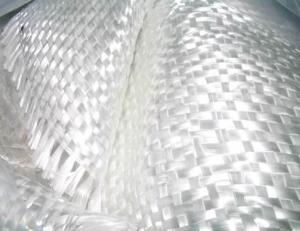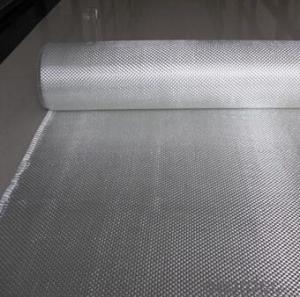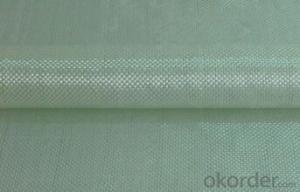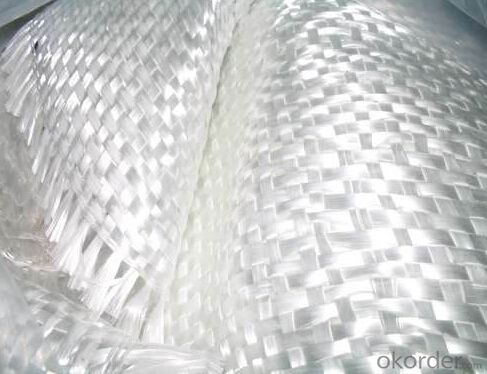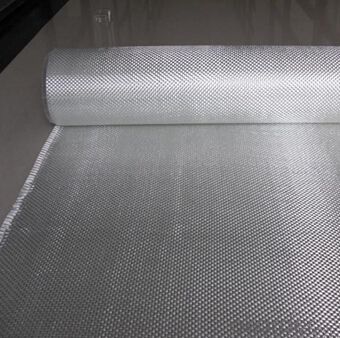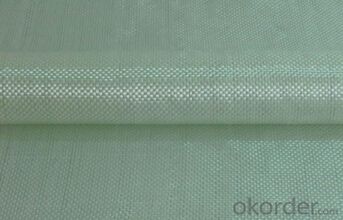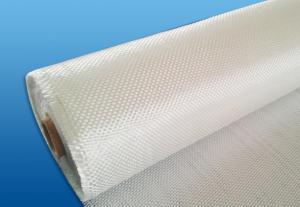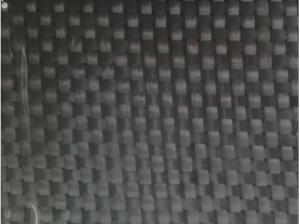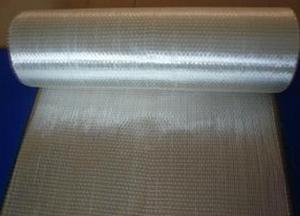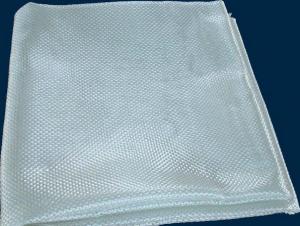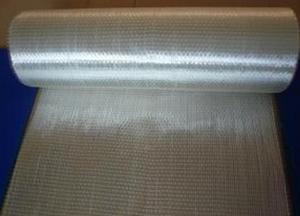Fiberglass Mat Tissue - C-Glass Woven Roving, 600g, 1m
- Loading Port:
- China Main Port
- Payment Terms:
- TT or LC
- Min Order Qty:
- C-Glass Woven Roving, 600g, 1m kg
- Supply Capability:
- -
OKorder Service Pledge
OKorder Financial Service
You Might Also Like
Introduction of E-glass Chopped Strand Mat
Chopped strand mat is made from fiberglass chopped strands boned with powder binder or emulsion binder.
accessories, pipe, building materials, automobiles, furniture and other FRP products.
This products ischaracterized bg good combination of resin,easg operation ,good wet strengthretention,good laminate transparency
E glass chopped strand mat is made from fiberglass strands chopped to length and bonded together
with powder binder. Chopped strand mat is used primarily for hand lay-up processes, filament winding and press molding of FRP products. Typical products include bathroom
accessories, pipe, building materials, automobiles, furniture and other FRP products.
Features of E-glass Chopped Strand Mat
1.Warp and weft rovings aligned in a parallel,flat manner and uniform tension .
2.Densely alighed fibers,providing high dimensional stability ans easy handing .
3.Good moldability,fast and complete resin wet-out ,enabling high productively .
4.Good transporsision and hign strength of the composite products.
5.Even thickness ,no fuzz ,no stain.
6.Fast wet-out ,products with high strength ,little loss for strength in damp situation.
7.fiberglass woven roving has the features of : high tensile strength, corrosion resistance, flame retardance,insulativity.main function
8.applied to hand lay-up process
9.to reinforce UP resin
10.even thickness and flawless
11.good performance of processability in moulded parts
12.properties guaranteed under moisture condition
13.excellent mechanical strength during production of finished products
Features of E-glass Chopped Strand Mat
1.the composit products have high dry and wet tensile strenth and good transparency.
2.Low fuzz ,dirt ,impurity and other stain
Images of E-glass Chopped Strand Mat
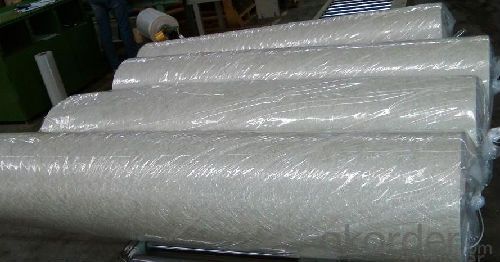
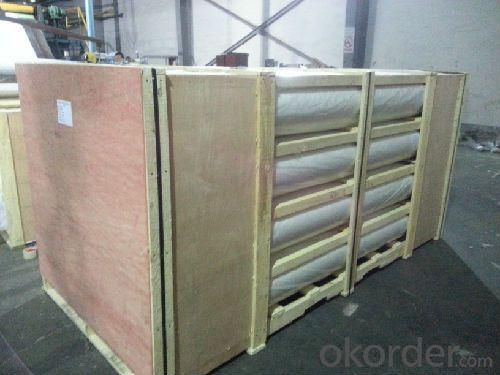
E-Glass Chopped Strand Mat Specification:
Property | Glass type | Weight(g/m2) | Width 200~3300 | Roll Weight | Moisture Content /% | Combustible Content /% | Breakage Strength /N |
Test Method | GB/T 1549 | ISO3374:2000 | ISO3374 | GB/T17470-1998 | ISO3344:1997 | ISO1887:1995 | ISO3342 |
EMC 80 | E-GLASS | 80±16 | ±5 | 6~50 | <0.2 | 13.6±0.35 | ≥200 |
EMC 100 | E-GLASS | 100±10 | ±5 | 6~65 | <0.2 | 9.5±0.35 | ≥170 |
EMC 150 | E-GLASS | 150±15 | ±5 | 6~97 | <0.2 | 8.0±0.35 | ≥40 |
EMC 225 | E-GLASS | 225±22 | ±5 | 6~150 | <0.2 | 5.0±0.6 | ≥60 |
EMC 300 | E-GLASS | 300±30 | ±5 | 6~180 | <0.2 | 4.0±0.6 | ≥90 |
EMC 450 | E-GLASS | 450±45 | ±5 | 6~180 | <0.2 | 3.8±0.6 | ≥120 |
EMC 600 | E-GLASS | 600±60 | ±5 | 6~240 | <0.2 | 3.6±0.6 | ≥150 |
EMC 900 | E-GLASS | 900±90 | ±5 | 6~190 | <0.2 | 3.4±0.6 | ≥180 |
FAQ of Chopped strand mat
1. Why Choose us?
CNBM is a stated own company, provide the guarantee for the best quality, best service and safety business.
2. How will we guarantee the quality?
a, ISO 9001-2008 quality control system;
b, Strict and regular quality control in production;
c, Inspeciation when loading into container before shippment;
d, Sample stock for one year for quality tracing and record.
3. What is your MOQ?
Our MOQ is one pallet.
4. Can you provide sample?
Yes, samples are in stock. we can offer free sample for you.
5. Payment terms?
We can accept L/C, T/T etc.
6. Do you offer OEM service?
Yes, we can print customers’ logo on the packaging;
And the size and specification can be produced and design according to your demand.
- Q: How does fiberglass mat tissue perform in terms of chemical resistance?
- Fiberglass mat tissue is renowned for its exceptional chemical resistance capabilities. This material is typically composed of glass fibers held together by a binder, enabling it to withstand a wide range of chemicals. This makes it a popular choice as a reinforcement in composite materials, like fiberglass-reinforced plastics (FRP), as it can endure exposure to various chemicals without degradation. The level of chemical resistance in fiberglass mat tissue can vary depending on its specific type, quality, and the chemicals it encounters. However, it generally exhibits high resistance to acids, alkalis, solvents, and other corrosive substances. This quality makes it suitable for applications where the material may come into contact with aggressive chemicals, such as in chemical processing plants, water treatment facilities, or storage tanks. It is important to acknowledge that while fiberglass mat tissue is generally chemically resistant, it may not be completely impervious to all chemicals. Certain highly concentrated or specialized chemicals may still have the potential to cause damage or deterioration over time. Therefore, it is always advisable to consult the manufacturer's specifications and recommendations for detailed information on chemical resistance before utilizing fiberglass mat tissue in a particular application. All in all, fiberglass mat tissue's robust chemical resistance properties establish it as a dependable option for applications involving chemical exposure.
- Q: Can fiberglass mat tissue be used for architectural applications?
- Yes, fiberglass mat tissue can be used for architectural applications. Fiberglass mat tissue is a versatile material that offers several benefits when used in architectural projects. It is commonly used as a reinforcement material in the construction of various architectural elements such as roofings, facades, and walls. One of the main advantages of fiberglass mat tissue for architectural applications is its high strength-to-weight ratio. It provides excellent structural integrity while being lightweight, making it ideal for use in large-scale architectural projects. Additionally, fiberglass mat tissue is known for its durability and resistance to extreme weather conditions, making it suitable for both interior and exterior applications. Furthermore, fiberglass mat tissue offers excellent fire resistance properties, which is an important factor when considering architectural safety standards. It has a high melting point and does not contribute to the spread of flames, making it a reliable choice for fire-resistant applications. In terms of aesthetics, fiberglass mat tissue can be easily molded into various shapes and designs, allowing architects to explore creative possibilities. It can be painted or coated to achieve the desired visual appearance, making it a versatile material for architectural finishes. Overall, fiberglass mat tissue is a reliable and versatile material that can be effectively used for architectural applications. Its strength, durability, fire resistance, and aesthetic adaptability make it a suitable choice for a wide range of architectural projects.
- Q: Can fiberglass mat tissue be used for insulation in cold climates?
- Insulation in cold climates can be achieved using fiberglass mat tissue. This material is renowned for its exceptional thermal insulation qualities, making it a favored choice for insulating structures in colder regions. By design, fiberglass mat tissue traps air pockets within its structure, effectively preventing heat transfer and maintaining warmth inside the building. This solution is not only cost-effective but also efficient in insulating walls, roofs, and floors in cold climates, resulting in reduced energy consumption for heating. Moreover, fiberglass possesses moisture resistance and retains its insulation properties even in extremely low temperatures. In summary, fiberglass mat tissue is a suitable option for insulation in cold climates due to its thermal insulation capabilities, durability, and resistance to moisture.
- Q: How does fiberglass mat tissue compare to polyurethane insulation?
- Fiberglass mat tissue and polyurethane insulation have different characteristics and purposes. Fiberglass mat tissue is commonly used as a reinforcing material in composite structures, providing strength and stability. On the other hand, polyurethane insulation is specifically designed to reduce heat transfer and improve energy efficiency in buildings. Therefore, while fiberglass mat tissue enhances structural integrity, polyurethane insulation primarily focuses on thermal insulation properties.
- Q: How is fiberglass mat tissue used in the production of water tanks?
- Fiberglass mat tissue, a type of non-woven fabric made from glass fibers, is commonly used in the production of water tanks due to its excellent strength, durability, and resistance to corrosion. Water tanks are typically made from fiberglass reinforced plastic (FRP), which is a composite material consisting of a polymer matrix reinforced with fiberglass. The fiberglass mat tissue plays a crucial role in this process as it serves as the reinforcement material. Firstly, the fiberglass mat tissue is cut into the desired shape and size to fit the mold of the water tank. It is then layered onto the mold, with the number of layers depending on the required strength and thickness of the tank. Once the fiberglass mat tissue is in place, a resin matrix is applied to impregnate and bind the fibers together. This resin can be polyester, vinyl ester, or epoxy, depending on the specific requirements of the water tank. The resin is typically applied using a spray or a roller, ensuring that it thoroughly saturates the fiberglass mat tissue. This process is often repeated multiple times to build up the necessary thickness and strength of the tank. After the resin has cured, the fiberglass mat tissue and resin composite becomes rigid and forms the structure of the water tank. The resulting FRP tank is lightweight, yet incredibly strong and durable, making it an ideal choice for storing and transporting water. The use of fiberglass mat tissue in water tank production provides several advantages. Firstly, it enhances the structural integrity of the tank, allowing it to withstand external forces such as pressure and impact. Secondly, fiberglass is highly resistant to corrosion, ensuring that the tank remains in good condition even when exposed to harsh environmental conditions or corrosive substances present in the water. Overall, fiberglass mat tissue is a critical component in the production of water tanks, providing strength, durability, and corrosion resistance, making it a reliable choice for various industrial, commercial, and residential applications.
- Q: Can fiberglass mat tissue be used for acoustic panels?
- Acoustic panels can utilize fiberglass mat tissue for sound absorption. This lightweight material is commonly employed for insulation purposes and is known for its exceptional sound-absorbing properties. By effectively reducing noise levels, it enhances the functionality of acoustic panels. Moreover, fiberglass mat tissue is a preferred choice for DIY projects due to its ease of use. However, it is crucial to consider other factors such as panel design, thickness, density, and installation method to maximize the effectiveness of acoustic panels. Therefore, consulting experts or conducting thorough research is recommended to determine if fiberglass mat tissue is suitable for your specific acoustic panel requirements.
- Q: Can fiberglass mat tissue be used for insulating ductwork?
- Yes, fiberglass mat tissue can be used for insulating ductwork.
- Q: Can fiberglass mat tissue be used for making lightweight partitions?
- Yes, fiberglass mat tissue can be used for making lightweight partitions. Its lightweight and flexible nature makes it an ideal material for constructing partitions that are easy to install and move, while providing adequate strength and insulation.
- Q: Is fiberglass mat tissue suitable for construction applications?
- Yes, fiberglass mat tissue is suitable for construction applications. It is commonly used as a reinforcement material in various construction projects due to its high strength, durability, and resistance to corrosion. It provides added structural integrity and stability to buildings, bridges, and other infrastructure. Additionally, fiberglass mat tissue is lightweight and easy to handle, making it a convenient choice for construction applications.
- Q: Can fiberglass mat tissue be used for interior decoration?
- Yes, fiberglass mat tissue can be used for interior decoration. Fiberglass mat tissue is a versatile material that can be used for various purposes, including interior decoration. It is commonly used as a reinforcement material for composite materials, such as fiberglass reinforced plastic (FRP), which can be used to create decorative elements like panels, wall coverings, and moldings. Fiberglass mat tissue is lightweight, durable, and has excellent strength and resistance to moisture and chemicals. It can be easily molded into different shapes and designs, making it a popular choice for interior decoration projects. Additionally, fiberglass mat tissue can be coated or painted to match any desired color or texture, allowing for a wide range of creative possibilities in interior design.
Send your message to us
Fiberglass Mat Tissue - C-Glass Woven Roving, 600g, 1m
- Loading Port:
- China Main Port
- Payment Terms:
- TT or LC
- Min Order Qty:
- C-Glass Woven Roving, 600g, 1m kg
- Supply Capability:
- -
OKorder Service Pledge
OKorder Financial Service
Similar products
Hot products
Hot Searches
Related keywords
